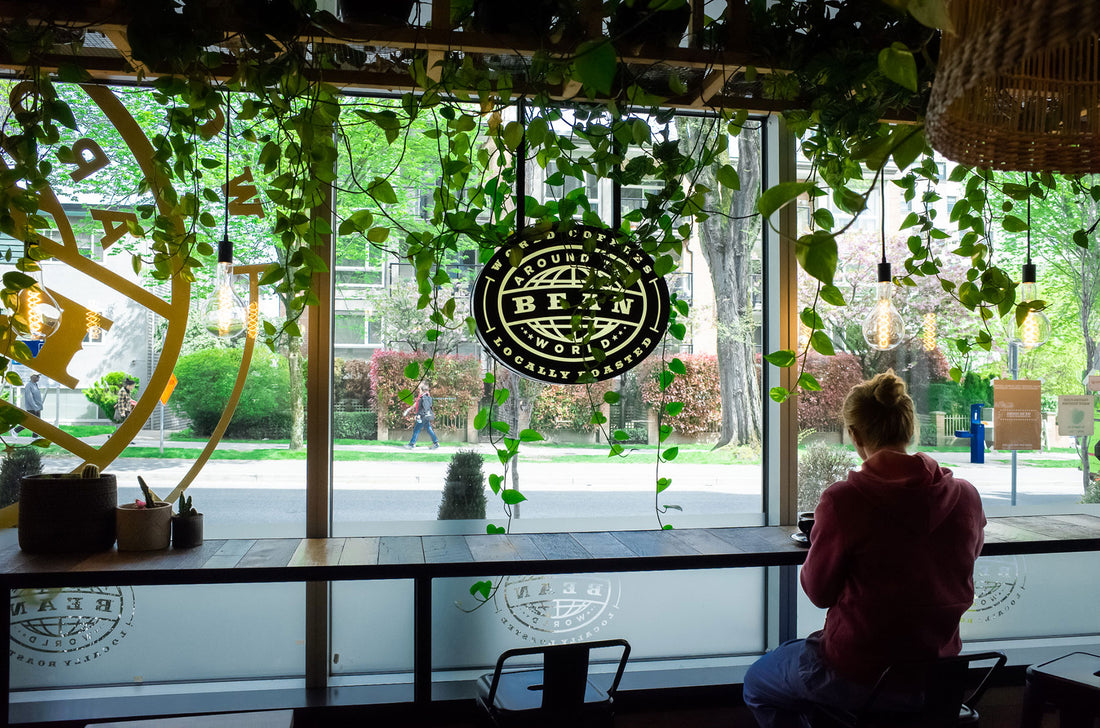The coffee shop serves as a second home for so many of us.
Many of us have spent countless hours in coffee shops writing essays or working on projects with classmates.
Many of us frequent coffee shop corners doing independent work as professional creatives or entrepreneurs, a coffee and croissant in close reach.
Little do we know that in these moments we have so much in common with some of the most influential thinkers and revolutionaries.
Throughout history, coffee houses functioned as epicenters of discourse, a place to challenge established norms, and the birthing ground of revolutionary ideas that shaped the very fabric of our modern world.
In this article, we’ll take a tour of pivotal moments in history made possible by the humble coffee shop.
How Coffee Houses Stirred Up Trouble in the Ottoman Empire
Disrupting the Accepted Social Hierarchy
In the unique socio-religious landscape of the Ottoman Empire, bars serving alcohol were off-limits to a majority population of Muslims.
The introduction of coffee houses in the Ottoman Empire created a venue for men of different social classes and backgrounds to gather, connect, discuss ideas and learn new perspectives.
Conversations that previously would've been confined to specific social circles were now accessible to all.
This gathering of diverse minds “introduced many to rebellion, self-determination, and the fallibility of the powerful," according to Dr. Sarah Jilani in her Economist article ‘How Turkish coffee destroyed an empire.’
Facilitating Revolutions
Sultan Murad IV, sensing the powerful influence of these establishments and possible threat to his rule, declared drinking coffee a capital offense in 1633.
He went to great lengths to enforce this, even disguising himself to catch and execute coffee drinkers with his broadsword.
Despite these stringent measures, the coffee house culture and its associated revolutionary thinking persisted, becoming the backdrop for plans that led to the independence of nations like Greece, Serbia, and Bulgaria.
The French Enlightenment, Coffee Houses and the birth of French Revolutionary Fervor
The “French Enlightenment," was an intellectual and cultural movement in the 18th century that emphasized reason, science, and skepticism over traditional authority.
Philosophers gathered in coffee houses to develop ideas that champion individual rights, religious tolerance, and political reform - laying the groundwork for revolutionary changes in the French society and beyond.
Early Enlightenment Philosophers’ Coffee House Orders
Far from the Ottoman Empire yet during a similar epoch in the 1600s, Parisian coffee houses were bubbling with the first signs of Enlightenment thinking - led by French philosophers like Jean Jacques Rousseau, Voltaire and Denis Diderot.
Diderot relied upon it to put together the “Encyclopédie” - a collection of work representing Enlightenment ideas.
Voltaire was known to drink from 50-72 cups of coffee or hot chocolate a day. His body of work included skepticism of the political establishment and the pursuit of reason, religious tolerance and liberty.
A Revolution that Percolated in Coffee Houses
100 years later, revolutionaries inspired by Voltaire and other French philosophers' empowering ideas would meet at Paris' Cafe de Foy before storming the bastille prison to free political prisoners…
an act that would kick off the French Revolution… leading to the beginning of modern France.
The Enlightenment in England: Coffee Houses as Penny Universities
Coffee Houses Disrupted Class Barriers
England at this time, like the Ottoman Empire, was a country defined by strict socio-economic hierarchies.
Just like in the Ottoman Empire, in London, coffee houses emerged as sanctuaries of relative equality. If you could afford a cup of coffee, you could rub elbows with others far above your supposed class.
Markman Ellis’ insights provide a vivid depiction: the very act of sitting next to anyone, regardless of their social standing, was revolutionary.
Coffee houses blurred the lines of class, creating a conducive environment for free discourse and innovative thinking.
No coffee houses allowed.
The reigning King Charles II viewed coffee houses with suspicion, particularly paranoid due to his father being executed by dissenters during the civil war.
On June 12, 1672, Charles II issued a proclamation to “Restrain the Spreading of False News, and Licentious Talking of Matters of State and Government,” embedded a network of spies in London coffee houses, and in 1675, ordered the closure of all coffeehouses in London.
His brief attempt to ban these hubs of discourse only lasted 11 days and ultimately failed to curb their growing influence.
Coffee Houses as Penny Universities
Oxford's coffee houses were dubbed 'penny universities' - reflecting their role as places to learn and have intellectual discourse no matter your economic status.
Different coffee houses catered to distinct audiences, be it writers, artists, poets, scientists, or stock traders. In fact, the coffee house dedicated to selling stock would become the London Stock Exchange.
Michael Pollan, in his recent work "Caffeine: How Coffee and Tea Changed the Modern World," expands that this "new, sober, more civil drink was changing the way people thought and the way they worked."
The Modern Day Coffee House
As for Bean Around the World, our first coffee house (shop) was opened in 1990 in West Vancouver. We have since expanded greatly across the Lower Mainland and even to the Island, offering a sanctuary for coffee and connection for over 30 years.
While technology in our bags and pockets may have made coffee houses less social than they were during the Enlightenment, the allure persists.
We might not be plotting revolutions, but coffee houses remain places of collaboration, ideation, and relaxation.
We hope this article inspires you to dare to think and speak more out of the box ideas with friends and strangers in person, in your favourite coffee shop.
After all, what is considered the most commonly accepted way to think may not always be what is necessary. What was once thought as crazy drove our world forward.
See you at your favourite neighbourhood Bean Around the World.







